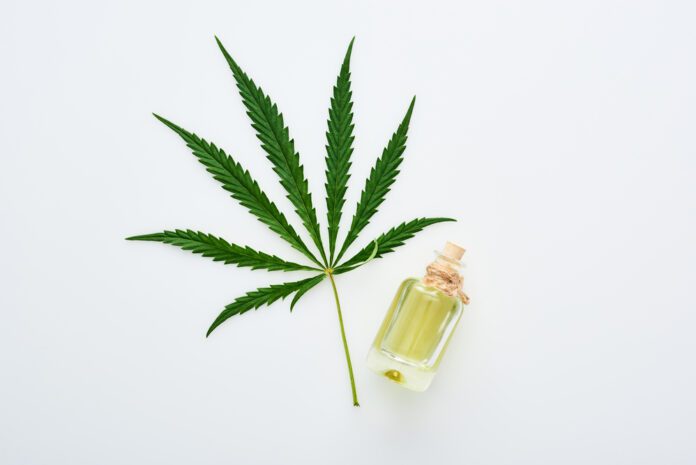Recently, there’s been a lot more mainstream global attention on cannabis particularly on cannabidiol (CBD). Cannabidol is one of the common chemical compounds present in cannabis (also called marijuana or hemp). With so much information about CBD available, it has become hard to separate facts from mere CBD myths.
While marijuana advocates claim CBD (contained in marijuana) is a potential cure for many diseases, critics of marijuana have raised different claims about CBD and its use.
In this article, we will explore ten common myths about CBD while debunking these myths with real facts.
Myth 1: CBD Use Has Not Yet Been Legalized
People must know that the world is changing and so is legislation. Not too long ago, marijuana use may have been prohibited in many parts of the world, but that has changed in recent times.Today, many countries have legalized hemp cultivation. For instance, in The United States, states such as Arizona, Alaska, California, New Jersey, etc., have legalized the cultivation and use of hemp.
Most states have policies in place that regulate the cultivation, buying, selling and use of CBD. Note that CBD regulation doesn’t mean it is not legalized. It is however important that people get their supply from a certified supplier.
Myth 2: CBD Can Make You Fail A Drug Test
Another myth is that CBD is a psychoactive agent and can make one fail a drug test. But that is not entirely true. CBD is non-psychoactive. Psychoactive agents are substances that can affect how the brain works and can cause change in thoughts, mood, feelings or behaviour while non-psychoactive agents do not alter how the brain functions. Since CBD is non-psychoactive, it means it cannot alter a drug test when consumed within the recommended amount.
You should note that drug tests lookout for THC, another chemical compound in marijuana. Thus, you should be careful about consuming products that contain THC in high trace amounts as they can affect your drug test.
Myth 3: CBD Induces A State Of ‘Highness’
CBD is a non-psychoactive agent and will not alter your mind if taken in small, recommended dosages. The major reason why people think CBD gets them high is because it is derived from cannabis.
While cannabis strains produce an euphoric high feeling, some active chemicals contained in the plant such as CBD do not cause such ‘high’ feeling.
CBD should not be confused with THC. THC is the psychoactive agent found in cannabis, which can induce a state of ‘highness,’ especially when taken in a high amount. Also, CBD, unlike THC, is not addictive. For this and other reasons, many people opt for CBD instead.
Myth 4: CBD Only Helps To Relieve Pain
One of the myths that should be dispelled is that CBD is only useful for reducing pain. Aside from pain relief, studies have shown that CBD has the potential to treat many other ailments like migraines, epilepsy, and autism. CBD has also been used for treating cases of anxiety, stress, and depression. Some people have also used it for treating inflammation and skin conditions.
Myth 5: CBD Is The Cure For All Ailments
We did point out that CBD is quite effective in treating and managing many disease conditions such as depression, migraines, inflammations, epilepsy, pain, and many others.
However, you mustn’t get carried away by the long list of ailments it has the potential to cure. It still has its limitations. CBD doesn’t cure all diseases!
Myth 6: No Research Has Been Done On The CBD Compound
There is the common myth that CBD is a Schedule 1 narcotic and therefore, no research has been carried out on the compound. This is a fallacy. CBD has indeed been classified under cannabis’s Schedule 1, making it hard to run research on CBD. Regardless, some universities in the US have been given permission to research the plant.
Myth 7: CBD Isn’t Scientifically Proven To Treat Medical Conditions
Some people assert that there are indications but no concrete evidence that CBD can help treat health conditions. This is another wrong assertion. Results of clinical trials have shown that CBD helps treat certain health conditions. In fact, The Food and Drug Administration, after clinical trials, had approved Epidiolex (a CBD-based medication) for the treatment of seizure disorders.
Myth 8: Taking A Higher Dose Of CBD Gives A Better Result
People tend to make the mistake of taking higher doses of CBD, hoping to see better results. This applies mostly to people that are taking it for purposes like pain relief. The fact is that a higher dosage of CBD doesn’t always mean better results. In fact, taking more than the recommended dose might lessen its effectiveness.
Myth 9: All CBD Products Are Produced The Same Way
Be wary of where you are getting your CBD products as they are not all produced the same way. Make sure you are choosing a tested, branded, licensed and reputable lab. Some CBD products sold online are mislabelled. It would be best if you looked out for clear labeling, dosing, tests and extraction methods.
Myth 10: CBD Has No Side Effects
This is another false information about CBD. CBD can cause some serious side effects, especially when taken alongside some other medications. Some of the common mild side effects of CBD include fatigue, nausea, and irritability. When taken alongside other medications, it can be potentially dangerous and can raise the blood levels of such medications. An example of medications CBD interacts with is the blood thinner Coumadin.
Conclusion
More people use CBD nowadays and we now know more about this chemical compound than we know years before now. However, there are still more things most people do not know about this product. Thus, it is vital that you talk to a doctor and do your research before starting a CBD regime or selecting any brand.
References





